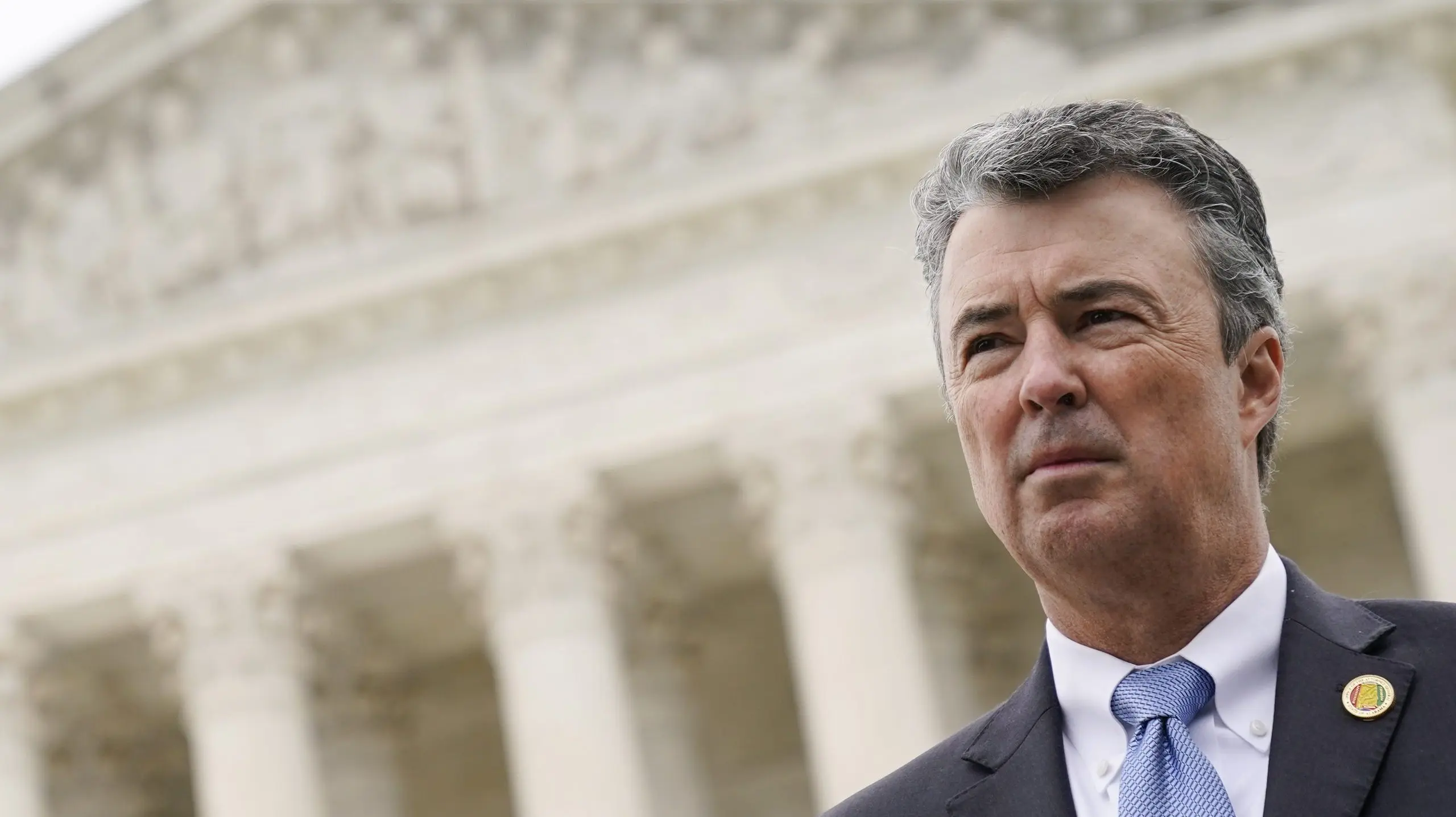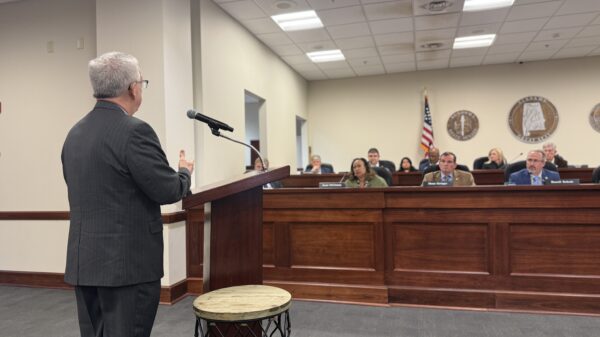Alabama Attorney General Steve Marshall has progressed calls for a U.S. Supreme Court ruling disallowing the death penalty for child sexual abuse to be overturned.
In a Thursday press release, Marshall highlighted his support for a letter sent to U.S. Attorney General Pam Bondi and White House Counsel Dave Warrington last month, calling for state AGs and legislatures, as well as the U.S. Department of Justice, to pursue actions to push the U.S. Supreme Court to overturn its 2008 ruling in Louisiana v. Kennedy.
The letter, led by Florida Attorney General James Uthmeier, was signed by Marshall and a total of 15 Republican state attorneys general.
“In one of the first acts of his second term, President Trump instructed the Department of Justice to ‘take all appropriate action to seek the overruling of Supreme Court precedents that limit the authority of State and Federal governments to impose capital punishment,’” the letter reads.
The document states that the attorneys general who signed onto the letter have committed to urging their state legislatures to enact legislation authorizing the use of the death penalty on those convicted of the rape of a child and have committed themselves to pursuing death sentences for child rape, “in appropriate cases,” and defend their decisions to do so through the appeals process.
The attorneys general urged the U.S. Department of Justice “to lend its support” to state legislative efforts by filing amicus curiae briefs in favor of upholding states’ right to pursue the death penalty in child rape prosecutions.
“These measures will enable States to distinguish Kennedy or otherwise convince the Supreme Court to overrule that tragic and demonstrably erroneous decision,” the attorneys general wrote.
In its verdict in Louisiana v. Kennedy, the Supreme Court ruled 5-4 against the constitutionality of the death penalty’s imposition for child rape convictions or convictions that do not result in a death.
The majority opinion cited that no person had been executed for rape of an adult or child in the U.S. since 1964, and no execution had taken place for a non-homicide crime since 1963. The court ruled that the rarity of state laws allowing the death penalty for child rape, with only six states having such statutes in place at the time, constituted a violation of the Eighth and Fourteenth Amendments’ protections against cruel and unusual punishment.
Legislation prefiled for the Alabama legislature’s 2026 session by Senator April Weaver, R-Brierfield, and Representative Matt Simpson, R-Daphne, would allow the death penalty for the rape of a child. Marshall spoke in favor of the legislation at a press conference in late July where the bills were formally announced.
Florida and Tennessee passed laws allowing the death penalty for sexual battery of a child under 12 in 2023 and 2024, while Idaho, Oklahoma and Arkansas did so in 2025.
“Alabama has long been a leader in standing up for the rule of law and for the protection of children. I am proud to stand with President Trump and my fellow attorneys general in fighting for laws that reflect the seriousness of this evil and deliver justice for its victims,” Marshall said in a written statement. “We must use every tool at our disposal to protect children, deter predators, and impose just punishment. Alabama will not hesitate to do its part.”
While Marshall’s office argued that the Kennedy verdict “disregarded the profound harm inflicted on [child rape] victims, equated their lifelong trauma with lesser crimes,” organizations such as the Death Penalty Information Center and the National Association of Social Workers, NASW, have urged against the imposition of the death penalty on those accused of child rape.
The Death Penalty Information Center criticized legislation sponsored by Simpson in the 2025 legislative session to expand the use of the death penalty for the rape of a child under 12, pointing to the legislation’s violation of the Kennedy ruling and citing activists’ arguments that the bill could cause victims additional harm.
“Because child sex crimes are most often committed by family members or close family friends, advocates pointed out that the possibility of a death sentence would make family members less likely to report the crimes,” the organization wrote. “There would be incentive to kill child victims, to eliminate the sole witness to the crime, the advocates also noted. And children would be retraumatized by the intense experience of participating in a capital trial and appeals, which would delay their ability to heal from the experience.”
An amicus brief sent to the Supreme Court prior to their ruling in Kennedy by NASW, the National Alliance to End Sexual Violence, as well as Louisiana and Texas-based anti-sexual assault advocacy groups, similarly argued expansion of the death penalty would impose greater harm on child victims.
“The threat of capital punishment for child sexual abusers greatly amplifies the concerns that already prevent many victims and relatives from reporting abuse,” the brief stated. “Victims who love their abusers may be all the more reluctant to report abuse to police when the possible consequences include lethal injection.”
Bondi announced last week that the Justice Department will be expanding its pursuit of capital punishment nationwide, during a press conference where Trump signed a presidential memorandum seeking to reinstate it in Washington, D.C.
“Not only are we seeking it in Washington, D.C., but all over the country, again,” the attorney general said.
Bondi has not currently commented on whether the Justice Department is in favor of a reversal of the Kennedy ruling.


















































